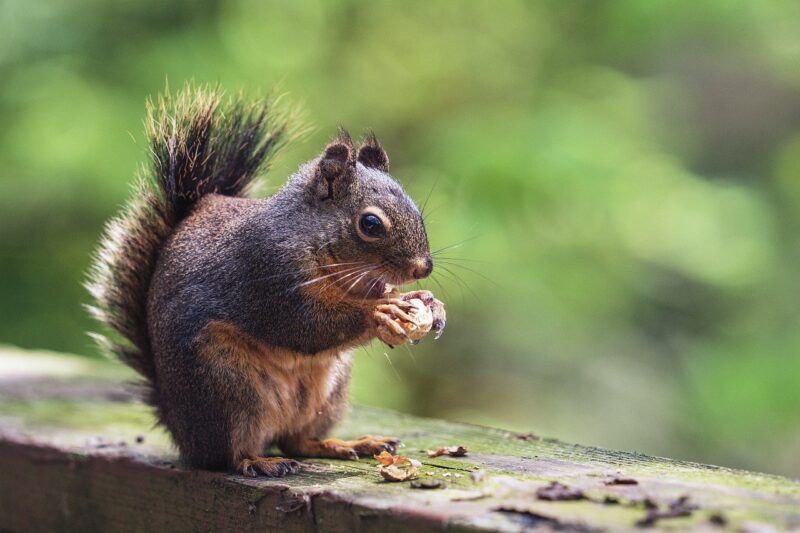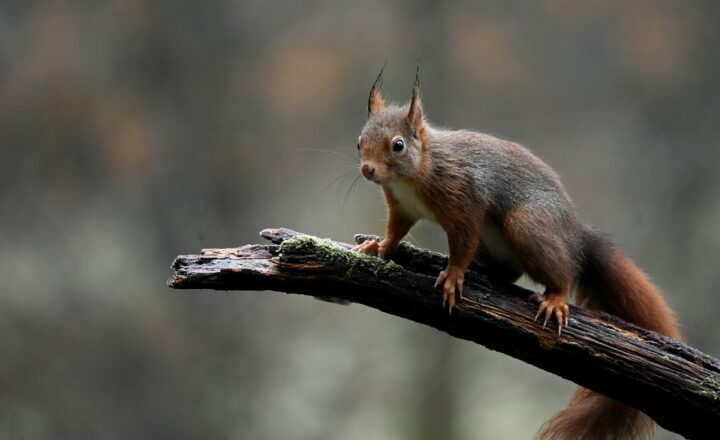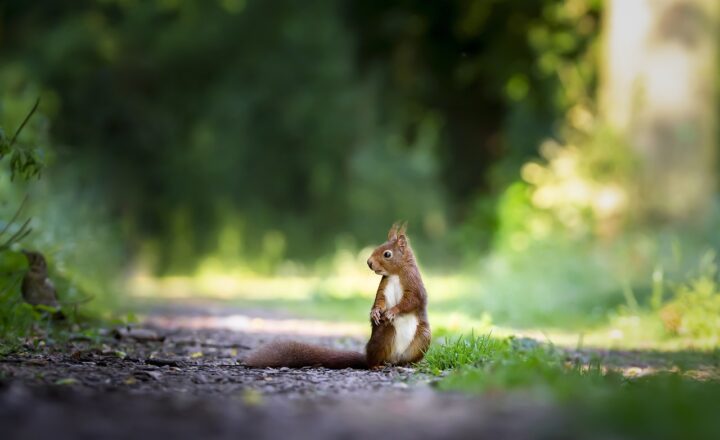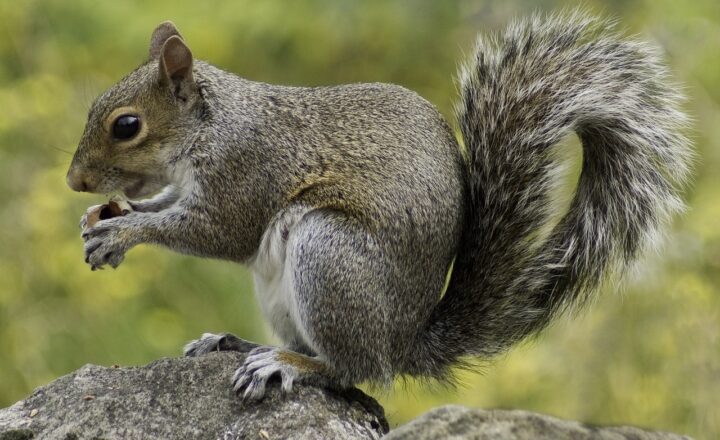Why Squirrels Are So Obsessed with Nuts: The Nutritional Needs of These Agile Rodents
November 13, 2024

Squirrels are fascinating creatures that have captured the attention and curiosity of many. With their bushy tails, quick movements, and notorious obsession with nuts, these agile rodents have earned a prominent place in nature, especially in urban landscapes. But have you ever wondered why squirrels are so fixated on nuts?
In this article, we will delve deep into the nutritional needs of squirrels, exploring their unique biological requirements, the various types of nuts they love, and the significance of these food sources in their daily lives.
1. The Nutritional Profile of Squirrels
Squirrels, like all animals, have specific nutritional needs that must be met for them to thrive. To understand their obsession with nuts, we first need to explore the essential nutrients that squirrels require.
Squirrels are herbivores, and their diet primarily consists of a variety of plant materials. This includes the following key components:
- Fats: Nuts are calorie-dense and rich in fats, making them an excellent source of energy. Squirrels require fats to maintain their high metabolic rates, especially in the colder months when food is scarce.
- Proteins: Proteins are crucial for growth and repair. Squirrels require adequate protein intake to develop strong muscles and maintain overall health.
- Carbohydrates: While nuts provide fats and proteins, squirrels consume carbohydrates from fruits, seeds, and vegetables for quick energy.
- Vitamins and Minerals: Nuts hold essential vitamins and minerals, such as Vitamin E, Magnesium, Phosphorus, and Calcium, necessary for various bodily functions.
Each of these components plays a vital role in keeping squirrels healthy and robust, which likely explains their predominantly nut-rich diet.
2. The Appeal of Nuts for Squirrels
Nuts are among the favorite foods of squirrels. But what is it about these small, hard-shelled delights that makes them so appealing?
Nuts have several attributes that cater to the nutritional needs of squirrels:
- Energy-Dense Food: Nuts provide a high caloric content, giving squirrels plenty of energy to sustain their activities, particularly when they forage or escape predators.
- Seasonal Availability: Many nuts fall during autumn, coinciding with a time when squirrels must gather and store food for winter. Being able to find and hoard nuts is crucial for their survival in colder months when food sources dwindle.
- Taste Variety: Squirrels are known for being selective eaters. Different types of nuts come with various tastes and textures, keeping their diet interesting and diverse, which is essential for maintaining their appetite and health.
This combination of factors makes nuts an irresistible food source for these rodents.
3. Common Types of Nuts in a Squirrel’s Diet
While squirrels eat many foods, certain nuts are particularly favored. Here are some of the most common types of nuts squirrels are known to enjoy:
- Acorns: Acorns are a staple in many squirrel diets and are abundant in forests. They are an excellent source of carbohydrates and fats.
- Pine Nuts: Squirrels often seek out pine seeds, which are packed with nutrients and grow in clusters within pine cones.
- Walnuts: Rich in healthy fats, walnuts are another delicious treat for squirrels, providing them with essential nutrients and energy.
- Hazelnuts: These are a favorite among squirrels due to their flavor and nutritional content, often found in wild areas or home gardens.
- Chestnuts: Chestnuts are full of carbohydrates and other important nutrients that vitalize their energy levels during the active months.
Each of these nuts offers unique benefits, contributing to the dietary diversity squirrels need to maintain their health.
4. The Importance of Hoarding Nuts
One of the most fascinating aspects of squirrel behavior is their tendency to hoard nuts. During the fall, you may find them burying nuts in various locations. This behavior isn’t just a quirky habit; it serves several crucial purposes:
- Survival Strategy: By hoarding food, squirrels ensure they have a reliable food source for winter when foraging becomes challenging due to snow and cold temperatures.
- Forgetfulness Equals Forest Growth: Surprisingly, many of the buried nuts are forgotten, leading to new tree growth. This natural process highlights the role of squirrels as forest gardeners, contributing to ecosystem health.
- Nutritional Insurance: Hoarding also allows squirrels to stockpile various nuts, ensuring they can meet their nutritional needs even if one type of food becomes scarce.
By hoarding nuts, squirrels utilize an instinctual behavior that fosters resilience and adaptability in their environment.
5. Behavioral Adaptations and Intelligence
Squirrels are not only skilled foragers, but they also exhibit high levels of intelligence and adaptability. Their cognitive abilities contribute significantly to their nut obsession:
- Problem-Solving Skills: Squirrels demonstrate remarkable problem-solving skills, allowing them to navigate challenges while searching for food, as they can remember where they’ve buried their stash and even find creative ways to access products high in trees.
- Memory Retention: Research has shown squirrels possess excellent spatial memory, enabling them to recall locations of buried nuts with impressive accuracy, which is essential for both feeding and survival during harsher months.
- Adaptation to Environment: Squirrels adjust their behavior based on environmental conditions—like food scarcity or the presence of competitors—showcasing their ability to strategize food collection effectively.
These attributes contribute to their prime position in the animal kingdom and further justify their nuts’ attraction, as these traits enhance their chances of survival.
Conclusion
For squirrels, nuts are more than just a food source; they are vital to their nutrition, health, and overall survival. Understanding why these agile rodents are so obsessed with nuts takes us on a fascinating journey into their dietary needs and intelligent behaviors. As we observe these endearing creatures scurrying around collecting and hoarding their food, we gain insights into the intricate balance of nature and the essential roles these seemingly simple pursuits play in ecosystems.
Next time you spot a squirrel enthusiastically burying a nut, remember that it’s not just a quirky habit—it’s a vital aspect of their life essential to their health and the environment around them.








